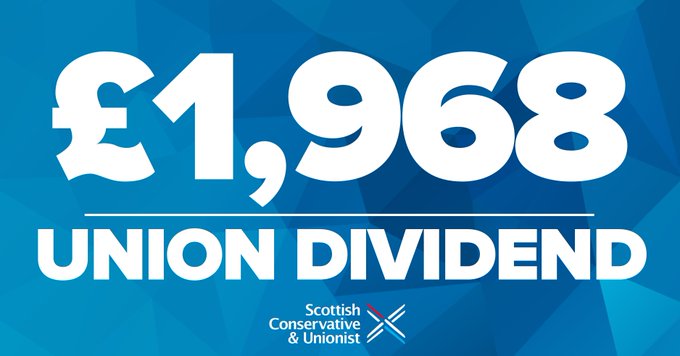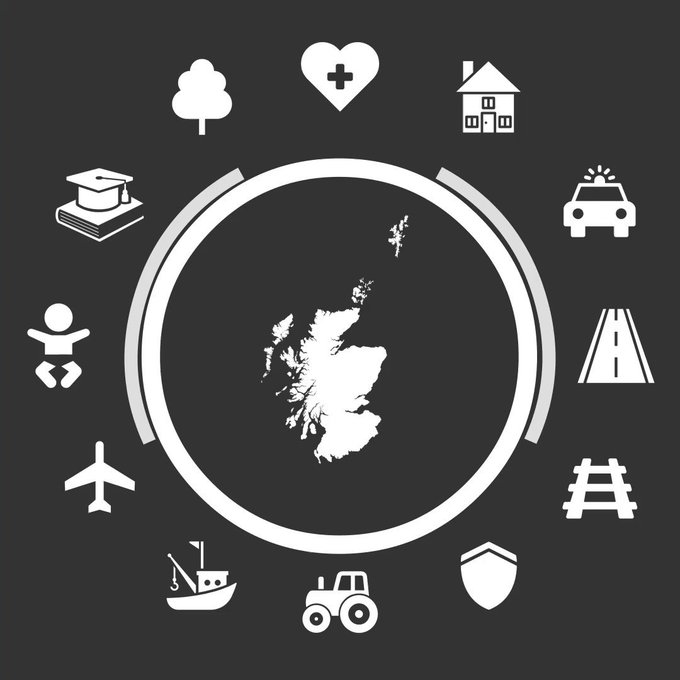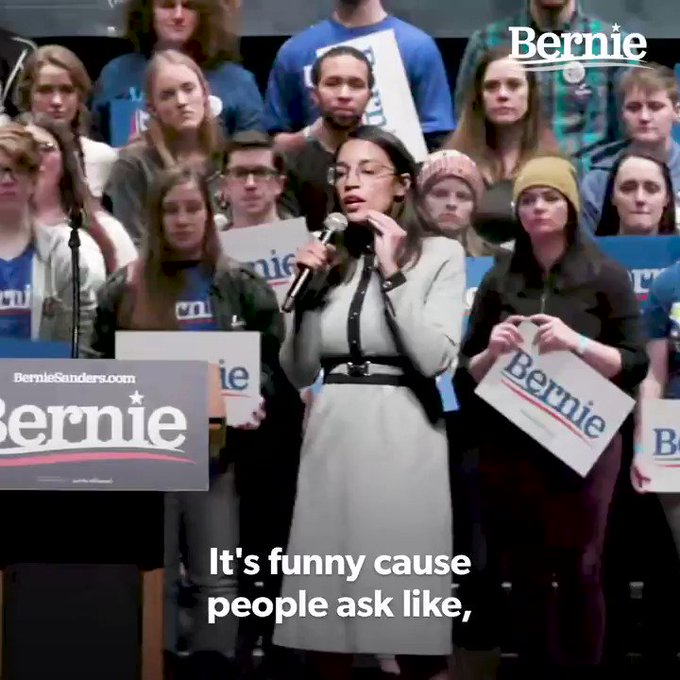“How would an independent Scotland pay for it?”
(https://themammothwhale.wordpress.com/2020/02/07/how-would-an-independent-scotland-pay-for-it/)
It’s that time of year again when unionists start spreading lies about how an independent Scotland is subsidised by taxpayers money from the rest of the United Kingdom.
“All the additional spending that Scotland benefits from is supported by the Union Dividend, now worth nearly £2000 for every man, woman and child in Scotland.”#ScotBudget
Feb 6,2020
UK Gov Scotland
✔ @UKGovScotland
This is an argument that supporters of independence have often struggled to tackle. In fact a recent YouGov poll found that, despite a majority saying they would vote Yes, one of the weakest arguments on independence was the economy.
There are may reasons for this, but today we’ll touch on just one, which is important. Right now unionists have complete control of the narrative. By using GERS each year they propose the argument that Scotland’s high government deficit is bad for us and that we rely on taxes to fund our spending. Instead of actually debunking this argument we accept it. We agree with unionists that our deficit is bad and we agree that we need taxes to fund our spending. So we’re forced on the defensive to prove to them that we can lower the deficit.
This is completely and utterly wrong. So now it’s time to turn the tables.
First, the independence movement needs to change its language entirely. Our language needs to move away from the narrative that unionists want to control. Take for example Alexandria Ocasio-Cortez in the US Democrats. She’s intentionally flipping the script from “how do we pay for it?” to “how will we organise it?”
This is the richest country in the history of the world. We can afford to guarantee health care and education for all our people. What we need is the political will. #NotMeUs
So if US Democrats like AOC can change her language to reach out to ordinary people then there’s no reason that independence activists can’t do the same.
So how do we respond to these sorts of arguments from unionists? Well the response is actually quite straight forward if you understand how modern economies work with their own currency and central bank. So, let’s pretend that that you are being interviewed by Andrew Neil on the issue of the union dividend. Don’t panic, you’ll be fine! Just breath and state the facts as they are. Ready? Let’s do this.
And before you go on live TV, everything stated in this blog will be linked to an academic source. You know, the real experts instead of a one sided article in the Daily Record or Daily Mail. Because quite obviously the best way to beat unionists is to state the facts.
Now smile, and don’t look at the camera!
*the interview begins*
Andrew Neil: Welcome to show.
You: Thanks for having me on.
Andrew Neil: As you saw from our opening, Scotland has the highest deficit in all of Europe and benefits from extra spending from the UK. That’s the equivalent of £1,986 per head of population. Tell me, if Scotland embraces separation and loses that dividend, how will you pay for your public services?
You: The same way we paid for bank bailouts in 2008, tax cuts for the rich, the House of Lords, weapons of mass destruction, and illegal wars. We will use public money from the central bank in an independent Scotland.
Andrew Neil: I know you’ll use public money, but you clearly have a tax short-fall. Without the UK’s extra tax revenues going to Scotland where will you find that extra spending? The truth is Scotland will be forced to accept austerity, isn’t that right?
You: Let me clarify what I mean by “public money“. The UK government is monetary sovereign. That means it does not use taxes for government spending. It’s just keystrokes on a computer. It’s newly spent public money from the central bank. So an independent Scotland could continue that with its own central bank and currency.
Andrew Neil: So you just want to print money, is that it?
You: Please let me finish Andrew. So there is no “union dividend” because that money is simply credited to Scotland, which can still be done with independence. What we’re doing is just the same as what the UK government is doing, except our spending will go to ordinary people.
Andrew Neil: Printing money is an idiot’s game. Have you seen what happened to Wiemar Germany, Zimbabwe or Argentina? Everyone knows that printing money causes hyperinflation. You might as well want to magic up a unicorn while you’re at it.
You: First of all we don’t “print money”. These days governments don’t go to the printing press and fill our brief cases full of £50 notes. It’s all done electronically by crediting the right account. Afterwards governments choose to issue debt. This is completely normal for monetary sovereign states and, again, happens all the time. That’s what the UK government is doing right now. So where is all our hyperinflation? Think about it, the UK carried out £435 billion of quantitative easing since 2009. That was because it had its own central bank to do so. An independent Scotland with its own central bank would use the same tools as the Bank of England has right now.
Second, the examples you cite were not caused because they “printed” money. Weirmar Germany lost its productive land from the allies, whilst Zimbabwe systematically ruined its own resources. When productivity falls drastically and demand remains high then you face an inflationary problem. But the simple fact is that crediting accounts, even without issuing debt, does not create a sudden spike in inflation.
Andrew Neil: I see you aren’t addressing Argentina. But why should we believe you when there’s clearly experts who would refute such nonsense?
You: On Argentina, they followed the neoliberal model by borrowing in a foreign currency. Foreign debt is real debt that has to be payed back with interest. It’s not the same as having debt denominated in our own currency, which is a benefit to our country.
Secondly, I understand if you don’t want to take my word for it, especially as I know you prefer your right wing “experts”.
Andrew: *laughs* is that the old BBC bias line?
You: Let’s agree to disagree. But if you don’t believe me then believe the Cato Institute, which is a right-wing economic think tank. They wrote a report that covered every single event of hyperinflation in history and discovered there was three main causes to it. It came down to war, political mismanagement and countries moving from a state-lead economy to a free-market economy. You’ll notice that their conclusion did not mention “printing money”, which again we don’t do anymore. So the question for an independent Scotland is not “how do we pay for it”, but rather “what areas should we spend on?”
Andrew Neil: But you know that an independent Scotland can’t just spend a limitless amount of money. Where do you draw the line with all this magic money?
You: I’ll put aside your magic comment, but that’s a good question. First, we want to make sure that we spend money in areas that can help grow productivity and increase employment. That can be done through a Job Guarantee programme, which can be discussed in detail another day. But we want to spend in areas that grow meaningful goods, that are in high demand here and elsewhere in the world. This strengthens our economy and-
Andrew: That’s all very well, but you still haven’t told me where you draw the line.
You: I will if you let me answer the question. Money isn’t the limit, resources are. Once we’ve fully utilised our resources, which is made up of labour, skills, physical capital, technology and natural resources, then any spending above this can be inflationary. Since we’ve reached full productivity in that scenario, then extra money will just circulate in our economy. So instead of having fiscal targets, by dictating to people what our deficit and debt level needs to be, we have an inflation target. Our deficit and debt levels should be whatever it has to be in order to support ordinary Scots to meet their needs and wants.
Andrew Neil: I want to go back to another point you made before. You’re seriously trying to tell me that an independent Scotland having a national debt in its own currency is a good thing?
You: Of course, do you know what it is?
Andrew Neil: I certainly do. Do you actually know what it is?
You: I do. The national debt is an account of all the currency that the government has issued and not yet taxed back. It is our net money supply into the economy. Its our savings, our pensions, the disposable income we have in our pockets every day when we walk around – that is the national debt. So having a big national debt, that does not go above our real resources of our economy, is totally okay and good for us.
Andrew Neil: As if anyone is going to believe that.
You: Well tell that to Japanese Andrew. Heck the UK’s national debt isn’t small either!
Andrew Neil: Since when was burdening future generations with increased debt considered a good thing? Because you know for a fact it all has to be paid back.
You: No it doesn’t. It is our debt, which as I’ve already said is the money we need in our pockets to live, we don’t owe it to anyone other than ourselves. And we don’t need to scare ourselves about our children paying it off in the future either, all generations do it. Our grandparents pay back the national debt. Our parents do it. We do it. Our children will do it too. Everyone pays it back in the form of tax, because tax removes some of our currency from the economy.
And I should add, an independent Scotland having a deficit is a good thing too. A Scottish deficit is adding net financial assets to the economy. It’s the complete opposite of austerity.
So when Conservatives like Boris Johnson, and sadly some SNP and Labour figures, talk about reducing the deficit and national debt, what they’re really saying is they want to drain ordinary people of net financial assets. They want you to have less because they aren’t driven by the facts; they’re driven ideology.
Andrew Neil: But the UK is balancing the books right now, yet the sky has not fallen in. In fact groups such as the UK’s independent fact checking charity, Full Fact, have said the UK is still to remain one of the fastest growing economies in the G7. So balancing the books is clearly doing some good, especially with Brexit on the way.
You: The UK government is not a household Andrew. Households need to balance their books because they don’t own their own currency. The UK government does. So when they want to “balance” the books they’re actually making cuts to our economy.
Andrew Neil: So where is the apocalypse? Why has the sky not fallen in when the UK government is being fiscally responsible? What you can’t deny is that there’s strong growth in the UK.
You: And? Just because an economy is growing does not automatically mean ordinary people are better off. You must live in a very privileged world Andrew.
Andrew Neil: Please spare me you’re patronising nonsense.
You: Well what has “balancing the books”, which is austerity, done for our economy? A report from the British Medical Journal found that 120,000 deaths could have been prevented if the UK government had reversed austerity. There are more than 2,000 foodbanks in the UK, which is more than the 500 Burger King and 1,250 MacDonald’s branches combined. Rape victims need to prove that their sexual abuse is worthy enough of government welfare, just so they can feed their children. Fit-to-work assessments have led to an increase in suicides, in particular amongst the disabled and women. The Equality and Human Right’s Commission found that if you’re a woman, disabled, have kids, from an ethnic minority or all of the above then you’re dis-proportionality worse off from austerity than your white, male counterparts. The Joseph Rowntree Foundation found that 1.5 million people were living in destitution in 2017 and is likely to have increased. Life expectancy has fallen since austerity returned in 2010. Over 30% of children live in relative poverty-
Andrew Neil: I think you’ve made the point.
You: But this is important Andrew. All these problems are driven by austerity. The narrative on economics is driven by ideology and not the facts. It should be up to the BBC and other media outlets to challenge the “union dividend”, because we’ve known for a while that it does not exist. We don’t rely on the rest of the UK for money. An independent Scotland with its own currency and central bank will have the power to, not just fund public services, but completely reverse UK austerity and build a better Scotland. Our economy should be built for people, not for politicians to brag about meeting unreasonable targets.
Andrew Neil: Yet this is all based on a few silly concepts, which no one is going to buy in another independence referendum.
You: Andrew there is literally hundreds of academic papers that back up what I’ve said today. There is plenty of experts and academics that will back this up too. If the media and politicians did a better job to present the economic facts then perhaps our society would be more educated on the matter. And perhaps we’d have less Conservative governments too.
Andrew: Okay, you can blame the media if want but we’ve heard it all before. So a final question for you. If public money is just spent by “keystrokes” and not from taxes, what is the point of taxes at all?
You: Well thanks for saying public money and not “taxpayers money”, because the latter doesn’t exist. I know we’re running out of time so I’ll try to be brief. Once you understand tax doesn’t pay for our public services then it has four uses. First, it helps remove money from circulation so there isn’t too much. Second, it helps us alter social behaviour. For example the minimum pricing on alcohol in Scotland has lead to a decrease in alcohol sales and discourages excess drinking. This can work in other areas, but that’s a different political debate.
Third, tax helps create better equity. Everyone knows that the rich are way too damn rich. By targeting large tax increases at the super rich the government destroys the wealth built up by the rich. That’s another thing I should have mentioned; when you pay your taxes you’ll never see that same money ever again. It is simply deleted from your account.
Andrew Neil: We’ll need to end it there-
You: Finally paying tax gives value to our currency. Tax allows there to be continued demand for the currency, giving it value. That demand will increase with an economy that utilises its resources. And as you know Andrew, Scotland is completely spoiled when it comes to our resources.
Andrew Neil: We’re going to have to leave it there. It’s a little hard to take in, but thank you joining us today.
You: Thank you.
Mutatus mutandis,
BBC barik, Euskal Telebista izan liteke, agian errazago Hamaika Telebista (ez ahantzi biak erabat kontrolatuta daudela!)
Andrew Neil gabe, edozein kazetari izan liteke (badakizu ekonomiaz ez dakitela deus euskal kazetariek)
Zu edozein euskaldun izan liteke, Diru Teoria Modernoaz (DTMz dakien edozein euskaldun).
Ez arduratu eta joan lasai elkarrizketara.









